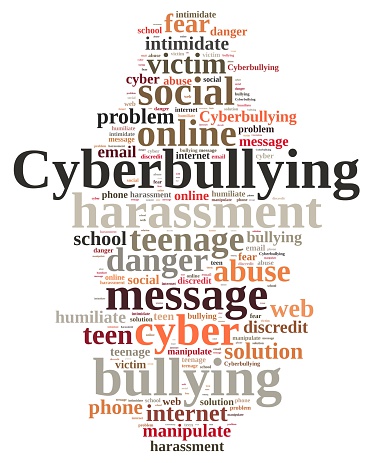Some people are not able to buy devices like computer, laptop, cellphone, etc. But some people can access information easily because of our generation now. Some people get a way of connecting wifi, or using data. Because of the budget of a person they cannot think to buy cellphone. Because television is enough for them to get an information.
To combat digital divide, there should be a group of people/organization that contribute to provide a technology for the people who doesn't have a device. So that people can easily get an information and it can help for them to be updated.

DIGITAL ADDICTION
Some people has been addicted to digital devices like computer. Especially, teenagers they cannot control using computer like playing online games.Other students can lie to their parents to just play/use computer with their friends. This addiction can causes the students to cut their classes.
To combat digital addiction, we should limit on using computer because we don't know what are the other effects on these in our life.

COMBAT CYBER BULLYING
Many people experienced bullying. Especially in social media which is now called cyber bullying. Mostly, teenager are the victims of this kind of bullying. Because, teenager are fond of facebook, twitter, instagram and in messenger. But as a student, how can I combat cyber bullying? Well, as a student, I can combat cyber bullying by telling those people who are doing it and to remind that we should respect other if we want them to respect us too, us a return.

ETHICAL USE IN MEDIA AND INFORMATION
Digital media ethics deals with the distinct ethical problems, practices and norms of digital news media. Digital news media includes online journalism, blogging, digital photojournalism, citizen journalism and social media. It includes questions about how professional journalism should use this ‘new media’ to research and publish stories, as well as how to use text or images provided by citizens.
A revolution in ethics
A media revolution is transforming, fundamentally and irrevocably, the nature of journalism and its ethics. The means to publish is now in the hands of citizens, while the internet encourages new forms of journalism that are interactive and immediate.
Our media ecology is a chaotic landscape evolving at a furious pace. Professional journalists share the journalistic sphere with tweeters, bloggers, citizen journalists, and social media users.
Amid every revolution, new possibilities emerge while old practices are threatened. Today is no exception. The economics of professional journalism struggles as audiences migrate online. Shrinkage of newsrooms creates concern for the future of journalism. Yet these fears also prompt experiments in journalism, such as non-profit centers of investigative journalism.
A central question is to what extent existing media ethics is suitable for today’s and tomorrow’s news media that is immediate, interactive and “always on” – a journalism of amateurs and professionals. Most of the principles were developed over the past century, originating in the construction of professional, objective ethics for mass commercial newspapers in the late 19th century.
We are moving towards a mixed news media – a news media citizen and professional journalism across many media platforms. This new mixed news media requires a new mixed media ethics – guidelines that apply to amateur and professional whether they blog, Tweet, broadcast or write for newspapers. Media ethics needs to be rethought and reinvented for the media of today, not of yesteryear.
Tensions on two levels
The changes challenge the foundations of media ethics. The challenge runs deeper than debates about one or another principle, such as objectivity. The challenge is greater than specific problems, such as how newsrooms can verify content from citizens. The revolution requires us to rethink assumptions. What can ethics mean for a profession that must provide instant news and analysis; where everyone with a modem is a publisher?
The media revolution has created ethical tensions on two levels.
- On the first level, there is a tension between traditional journalism and online journalism. The culture of traditional journalism, with its values of accuracy, pre-publication verification, balance, impartiality, and gate-keeping, rubs up against the culture of online journalism which emphasizes immediacy, transparency, partiality, non-professional journalists and post-publication correction.
- On the second level, there is a tension between parochial and global journalism. If journalism has global impact, what are its global responsibilities? Should media ethics reformulate its aims and norms so as to guide a journalism that is now global in reach and impact? What would that look like?
The challenge for today’s media ethics can be summarized by the question: Whither ethics in a world of multi-media, global journalism? Media ethics must do more than point out these tensions. Theoretically, it must untangle the conflicts between values. It must decide which principles should be preserved or invented. Practically, it should provide new standards to guide online or offline journalism.
by Stephen J.A. Ward
- A revolution in ethics
- Layered journalism
- Difficult questions for digital media ethics
- Ethics of images

OPPORTUNITIES AND CHALLENGES OF MEDIA AND INFORMATION
Just a blink of the eye in world history, the 40-year existence of the Internet has been revolutionary, its impact comparable to the invention of the printing press nearly 600 years ago. The World Wide Web has become a societal foundation for global communications, economics, science and politics. And it has increasingly opened the doors for millions of people to take part in the world well beyond their immediate communities. The digital era has opened vast opportunities, but it also poses risks. Internet abuse takes many forms, such as cyber crime, and combating it is a challenge to both policy makers and business.
http://www.digital-development-debates.org/challenges-for-the-media-from-information-to-participation.html

MIL: EMILENE ANGELA A. BAUTISTA XI- SOCRATES
No comments:
Post a Comment